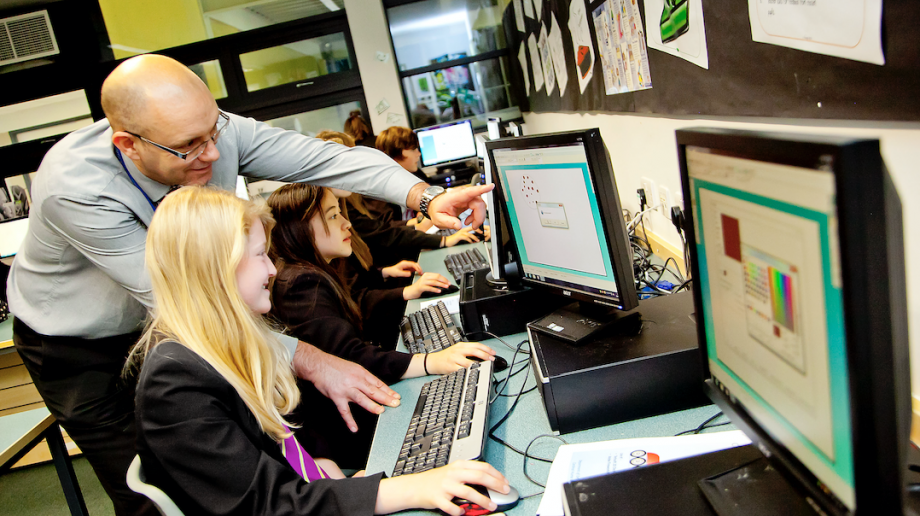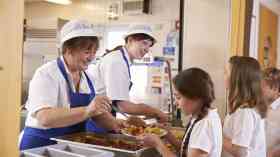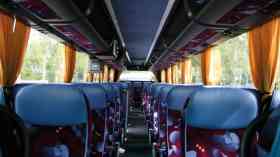
What does it mean to be a Computing Hub school?
Computing Hubs, led by schools and colleges with top computing expertise, are part of the National Centre for Computing Education's programme to deliver a world-class computing education in all schools in England. So what does it mean to be a Computing Hub school, and what impact do they have? Victoria Temple finds out
It’s two years since Cardinal Hume Catholic School in Gateshead became a Computing Hub School – a role which has led to a doubling of the numbers of A level computing students, a vibrant network of educators, and opportunities for primary and secondary teachers from across the region, says teacher James Dixon, head of computing at the school.
The network of Computing Hubs, led by great schools and colleges with computing expertise, is a key part of the National Centre for Computing Education’s (NCCE) programme to deliver a world-class computing education in all schools in England. The 34 Hubs provide primary and secondary schools and colleges in their area with high-quality CPD supported by generous bursaries; teaching and learning resources; and school-to-school support.
Growing the department
Cardinal Hume Catholic School in Gateshead is the NCCE’s Hub for Gateshead, Newcastle, Durham and Cumbria. It’s a role which has brought opportunities for both the school’s staff and students, and across the areas they support, says James who is also Secondary Lead for the Hub.
“Prior to being awarded Computing Hub status my department was made up of three teachers. Since becoming a Hub the department has grown. We now have six teachers who deliver our computing curriculum and uptake from our pupils is growing fast.
“Our A level cohort doubled in size this year and looks set to double again for September 2021. We are also delighted to see more girls taking the subject with a third of the cohort being female.”
They’ve also seen a broadening in the appeal of computing in teachers too, with the NCCE’s training courses offered via the Computing Hub attracting staff from a range of backgrounds from Cardinal Hume, other schools across the region and school-centred Initial Teacher Training (ITT) providers.
“Seven non-specialist teachers have completed the Computer Science Accelerator programme at Cardinal Hume and more are keen to take part next year, both in Cardinal Hume and among our Trust,” said James.
“The Computing Hub has helped build capacity in the department. This in turn has supported me as Computing Hub lead. I’ve reduced my teaching commitments so that I can focus more on leading the Hub, knowing that pupils are in good hands.”
One of those non-specialists is Claire Reed, a trainee business studies teacher who came to Cardinal Hume in September 2020. Claire completed the NCCE’s Computer Science Accelerator programme and went on to achieve the BCS certificate in GCSE Subject Knowledge. She’s now applying to be a Business and Computing teacher.
“Being given a teaching placement at a Computing Hub has been fantastic,” said Claire.
“It gave me opportunities far greater than I could have imagined as a non-specialist. I had little prior knowledge but felt really supported by the facilitator and the Hub and realised I had a real passion for the subject.”
She’s not alone in adding computing to their specialisms.
Adapting during the pandemic
Of course, over the last year the impact of Covid and the lockdown has been enormous. Teachers and students at Cardinal Hume adapted quickly and an online learning portal was created.
“We have learnt many new skills and teaching and learning will benefit from these for many years to come,” said James. “Our school’s learning portal was such a success it continues to be a great way of co-ordinating work with pupils whilst at home. This year has really highlighted the importance of good digital skills in our school community and Computer Science lies at the heart of this.”
Face-to-face CPD was replaced with remote delivery and facilitators were rapidly trained on the use of Adobe Connect.
“I wasn’t sure how well the remote courses would be received by participants, or how many would have time to fit in CPD in the current circumstances. It became clear very quickly that I didn’t need to worry. Teachers booked on to our courses in great numbers and the feedback was positive.”
A blended model
Going forward, Cardinal Hume Computing Hub expects to adopt a blended model, delivering a mixture of remote and face to face courses. The outreach role of the Hub remains a key part of its work.
As James says; “My favourite part of being a Computing Hub Lead is having the opportunity to engage with and support so many great teachers and to work with our fantastic subject matter experts and computer science champions.”
Regular meetings of primary and secondary meetings of the grassroots teacher-led network Computing at School (CAS) enables resources and ideas to be shared, and the Hub’s work with primary schools is also key. Vicky Dodds is Primary Lead at the Cardinal Hume Computing Hub.
She said; “I have been amazed at the resilience of the teachers to develop their subject knowledge during what has been potentially the most challenging year in education. Through my role at the hub and combining this with my role as a CAS Community Leader/ Barefoot Ambassador we have managed to reach out to communities of teachers through online learning and make it more accessible to them.
“Teachers are keen to look at how to improve the delivery of computing and embed it in their curriculum. Liaising with the hub has allowed them to develop their computing curriculum, access training needed to address gaps in knowledge and build a support network that they can access when it is needed. Primary schools are eager to develop their knowledge and access training to hit the ground running in September."
Ongoing support
The CAS network offers ongoing support and engagement to teachers across the region, said Sarah Zaman, Primary Subject Matter Expert for the North East at Cardinal Hume and CAS Outreach manager for the North East, Yorkshire and Cumbria.
“I’ve been able to fully engage with and support primary schools in terms of their computing needs, as not only do schools receive support from my role as an SME but they attend courses through the Hub and then have continued support from their local CAS communities which I can signpost them too.”
James agreed and said that the Hub had built strong relationships with many schools and he’s proud of how much computing provision has improved in the area.
“A number of primary and secondary teachers who attended our courses in our first year are now facilitators and run courses on behalf of Cardinal Hume at their school. It has been brilliant to see that through their support and their networks, we have been able to increase our reach and engagement.”
The pupils are also reaping the benefits of a vibrant computing education.
Kieran, a current year 13 A Level Computer Science Pupil, said; “Computer Science is everywhere! I love having an understanding of Computer Science to appreciate the digital world we live in. Computer Science enables me to develop skills that are going to be in huge demand in the future– it’s so exciting.”
As Owen, a fellow student said they’re learning skills which will leave students well placed for the future. “I really enjoy Computer Science,” he said. “It is exciting being part of something so huge. I want to understand and be a part of the technology that is shaping the world around us."
Victoria Temple is community engagement officer for the National Centre for Computing Education.
Latest News
31/10/2025 - 10:12
A growing number of UK children are now eligible for Free School Meals (FSM), yet most still aren’t taking advantage of them on a daily basis, new research reveals.
30/10/2025 - 01:28
In the wake of the Raac crisis, the DfE spent £5 million on research into the condition of school buildings, which is due to conclude in spring 2026.
30/10/2025 - 01:09
Malmesbury Primary School in Wiltshire has submitted plans for a major expansion, funded by entrepreneur James Dyson.
30/10/2025 - 00:55
Monday's Every Pair Tells a Story campaign to protest to highlight the national crisis in SEND provision.
29/10/2025 - 09:19
Estimated data from the Department for Education reveals that 470,000 pupils under 16s use local authority funded transport to get to school.







